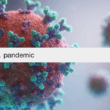
Allergies are a common problem, but when it comes to alcohol, the water gets a little murky. Many people don’t know what to look for, and fewer people understand the difference between alcohol intolerance and alcohol sensitivity. This article seeks to expose the hidden consequences of alcohol allergy and provide a clear and in-depth examination of symptoms of allergy to alcohol.
Decoding alcohol sensitivity: background
Alcohol sensitivity is a lesser-known condition, often overshadowed by the more popular concept of alcohol intolerance. But alcohol allergy is a real and potentially dangerous condition characterized by an immune response to certain ingredients in alcoholic beverages.
Typical symptoms of an alcohol allergy
An alcohol allergy can manifest itself through several symptoms. They may include nausea, stomach cramps, difficulty breathing, or even a severe allergic reaction in extreme cases. Skin reactions, such as hives or swelling, are also common.
Difference between alcohol sensitivity and alcohol intolerance
While alcohol intolerance and alcohol sensitivity may share some symptoms, they are fundamentally different. Allergies trigger an immune system response, causing symptoms such as skin reactions or breathing difficulties. On the other hand, intolerance results from the body’s inability to metabolize alcohol, resulting in symptoms such as flushing, rapid heartbeat, and nausea.
Debunking myths about alcohol allergies
There is a great deal of misinformation about alcohol allergy, which leads to many myths being spread.
Myth 1: All alcohol causes allergic reactions
This myth is very common but fundamentally flawed. People with an alcohol allergy are usually sensitive to certain ingredients in some alcoholic beverages, not the alcohol itself. Triggers can include sulfites, histamine, gluten or yeast.
Fact: Certain ingredients in some alcoholic beverages trigger allergic reactions
These ingredients vary from one alcoholic drink to another, making it essential to identify the specific triggers that trigger your symptoms. It is not the alcohol itself but what accompanies it in the drink.
Myth 2: Taking an antihistamine before drinking prevents allergy symptoms
While this may seem like a useful workaround, it’s not entirely accurate. While antihistamines may sometimes relieve symptoms of alcohol allergy, they do not prevent the allergic reaction. Antihistamines are not recommended to facilitate alcohol consumption if you are allergic to alcohol.
Fact: Antihistamines relieve symptoms and do not prevent allergic reactions
Antihistamines can help manage symptoms but do not treat the root cause of the allergy. It is not a preventive measure and should not be used to empower individuals with known alcohol sensitivity.
Adopt strategies to manage alcohol sensitivity.
Living with an alcohol allergy doesn’t have to be a daunting task. You can prevent allergic reactions and enjoy life with the right knowledge and strategies.
Know your triggers
The first step towards dealing with allergies is to recognize your triggers. This means understanding the types of alcohol or ingredients that cause allergic reactions.
The Role of career guidance in Identifying Motivators
A healthcare provider can help identify triggers by performing allergy tests or analyzing symptoms and history. These professional guidelines can be invaluable in effectively managing your alcohol sensitivity.
Make informed choices about alcoholic beverages.
Knowing your triggers is just part of the equation. The other part involves making informed decisions about what you consume.
Importance of reading labels and abstaining when in doubt
Always check alcoholic beverage labels for potential allergens. If you’re unsure or if a drink doesn’t have a clear list of ingredients, it’s best to abstain.
Communicate your sensitivity to others
Telling others about your allergy can help prevent unintentional exposure to the allergen, particularly in social situations where alcohol is served.
Prevention through awareness: friends, family and food establishments
By informing friends, family, and staff at food establishments about your allergy, you can reduce the risk of accidental exposure and ensure your safety.
Empowering yourself through knowledge: Living confidently with an alcohol allergy
Knowledge is power. Understanding your body and the nature of your allergies allows you to live confidently, despite your alcohol allergy.
A journey to learn more about your body and allergens
This trip can be a rewarding experience. It can reveal surprising facts about your body, how it reacts to certain substances, and the wide range of allergens in everyday items.
Turning a challenge into an opportunity for continuous learning
This challenge is not a setback but an opportunity for growth. Embrace the journey, keep learning, and use this knowledge to improve your overall health.
Prioritize your health above all else
Your health should always be your top priority. Don’t let societal pressure or misinformation stop you from making decisions in your best interest.
How to handle social pressure and make decisions in your best interest
It is essential to remember that your health and well-being always come first. Stand firm against social forces, and make informed decisions prioritizing your health above all else.
Conclusion
Understanding the nuances of alcohol sensitivity, debunking myths, recognizing triggers, and making informed decisions are all essential to managing this condition effectively. Empower yourself with knowledge and live confidently with your alcohol sensitivity.
Can antihistamines prevent alcohol allergy symptoms?
While antihistamines may alleviate the symptoms of an alcohol allergy, they do not prevent the allergic reaction itself and should not be used to enable drinking in individuals with known alcohol allergies.
What are common triggers in alcoholic beverages for people with alcohol allergy?
Triggers can vary from person to person, but common ones include sulfites, histamines, gluten, or yeast.
How can I manage my alcohol allergy?
Recognizing your triggers, making informed choices about what you consume, and communicating your allergy to others are crucial steps in managing an alcohol allergy.
Can I still enjoy life with an alcohol allergy?
Absolutely. With the right knowledge and strategies, you can prevent allergic reactions and still enjoy life, even with an alcohol allergy.



